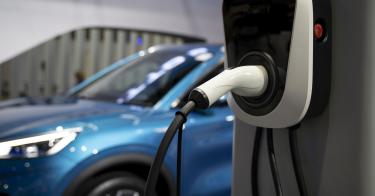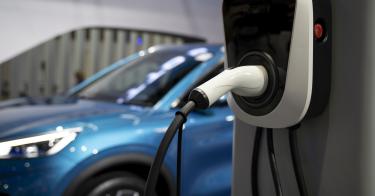America’s Electric Car Crash Is Over. Europe Has Finally Noticed
By Diana Furchtgott-Roth
President Donald Trump’s policies have upended the electric vehicle (EV) landscape, sending shockwaves through the industry that are being felt not just in the United States, but globally. The European Union can no longer ignore the costs of banning new gas-powered car sales by 2035.

During his campaign, Trump was consistent in his determination to restore Americans’ right to buy the cars they want. At a 2024 campaign rally in Waco, Texas, he said, “We are a nation whose leaders are demanding all electric cars, even though they can’t go far, cost too much, and whose batteries are produced in China with materials only available in China, when an unlimited amount of gasoline is available inexpensively in the United States of America, but is not available in China.”
Trump has implemented a five-pronged approach to make his policy a reality. First, he removed the requirement for car companies to sell a certain share of battery-powered electric vehicles. Second, he pledged to consider cancelling the $7,500 tax credit to buy EVs, which would have cost $105.7 billion over the next 10 years. Third, Trump paused producer tax credits for clean energy, including advanced battery technology. Fourth, his transportation department is suspending billions allocated to build electric charging stations. Fifth, Trump pledged to end state emissions waivers that limit sales of gasoline-powered automobiles.
The effects of Trump’s policies are being felt domestically, as car companies quietly drop their Biden-era plans to go all-electric. The consequences of his agenda are set to be wider than that, impacting the European Union’s plans to ban new gas-powered car sales by 2035. The EU is still allowing Chinese companies to sell low-priced electric cars into its market, with tariffs of 17 to 38 per cent. Some analysts suggest that the German car industry could lose as many as 400,000 of its 800,000 jobs over the next decade.
In the UK, Labour politicians are partially backtracking on Conservative promises to require 80 per cent of new cars sold to be electric by 2030 and 100 per cent by 2035, introducing new exemptions. Aston Martin has postponed its first EV model until later this decade.
Just as President Reagan’s 1986 tax cuts forced other countries to lower their taxes, Trump’s common-sense attitude towards gasoline-powered cars is likely to throw a spanner in the works for European EV plans. Rolling back mandatory EVs also increases pressure on China, which produces over three-quarters of global EV batteries.
The heart of the matter is that drivers should have a choice over which car to buy, based on their own preferences and needs. People do not want to be dictated to by governments, hence the rise of Right-wing politicians across Europe who have promised liberation from environmental regulations. America is about to become an even more powerful example of the advantages of leaving car purchases to consumer choice.



